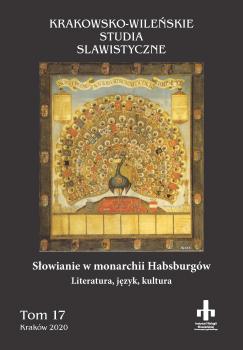Vengry sredi russkih svâtyh: Služba na uspenie prp. Efrema Novotoržskogo .......... 9
Synopsis
HUNGARIANS AMONG RUSSIAN SAINTS – THE WORSHIP OF ST. EFREM NOWOTORSKI
St. Efrem of Torzhok had Hungarian origins and probably was the older brother of George and Moses Ugrins. It is supposed, but not strictly proofed that the brothers moved to Rus’ at the beginning of the 11th century to serve the prince of Rostov named Boris. George Ugrin was killed together with St. Boris when he tried to defend him in 1015. Efrem found his head and kept it till the end of his life. In 1038 he established a monastery devoted to SS. Boris and Gleb, where he became an abbot. He was canonized as locally venerated person under metr. Dionysios after 11th of June in 1572 when his relics were found. In 1621 the feast of St. Efrem was established for Dormition Cathedral in Moscow, but not later than 1634 it was cancelled and he remained locally venerated. The worship of St. Efrem is also dated to the second part of the 16th century. This religious attitude is not mentioned in menaions so we find it mainly as belonging to the worship of Russian saints and to the religious canons of this area. The creator used a lot of diverse patterns for the new worship. We see borrowings of hymns from the worship of St. Varlaam of Hutyn, St. Antonius of Rome, St. Theodor of Smolensk, St. John Climacus, St. Demetrius of Priluzk, St. Alexander Nevsky. It is interesting that many hymns devoted to Russian saints were chosen as patterns for the worship of St. Efrem so we can say that despite his Hungarian origins, St. Efrem was perceived as Russian. Later on St. Efrem’s worship became itself the pattern for worshipping other persons. The submitted paper examines the worship of St. Efrem and reveals its sources.





